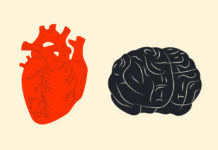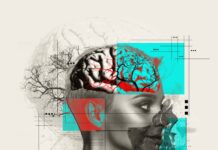Research News
Antidepressants Linked to Insomnia in Children and Adolescents, Meta-Analysis Finds
Sertraline (Zoloft) showed the highest risk, with odds of insomnia more than doubling compared to placebo.
What If Psychology Started With the Heart Instead of the Mind?
A new study explores how Chinese and Japanese traditions of “heart-mind” open alternatives to psychiatry’s brain-bound models of distress and healing.
No Subgroup of Patients for Whom Antidepressants Are Effective
A reanalysis of STAR*D finds no support for the theorized subgroup of patients who do well on antidepressants.
Psychiatric Coercion Lacks Ethical or Legal Justification, Scholar Argues
Dirk Richter reviews the five ethical and legal standards for forced treatment and finds none are met.
How People Around the World Make Sense of Psychosis
Findings highlight the importance of cultural and spiritual frameworks in how people make sense of psychosis.
How Mental Health Rights Are Misused to Entrench Psychiatric Coercion
Emmanuelle Bernheim argues that legal rights often reinforce, rather than dismantle, coercive psychiatric practices.
Childhood Trauma Is a Global Mental Health Crisis, Researchers Warn
A survey of more than 16,000 youth across three countries shows a clear link between adverse experiences and mental illness.
Researchers Criticize Putting Preschoolers on Stimulant Drugs
Against guideline recommendations, preschoolers were often prescribed stimulants without even having the chance to try family behavioral therapy.
Scientists Warn of Overlooked Mental Health Effects From PFAS
A review of PFAS exposure highlights gaps in research but points to disproportionate risks for marginalized communities.
Adolescents Diagnosed With ADHD and Autism Describe What Upsets Them
Young people say school rules, social exclusion, and sensory overload often trigger distress. A new study centers their voices and challenges deficit-based models.
Psychosis Severity Tied to Childhood Trauma, Not Inherited Mental Illness
A cross-national study shows trauma’s lasting impact on psychosis is not explained by parental mental illness.
ChatGPT Doesn’t Identify Well-Known Retracted Studies, Claims They Are “Internationally Excellent”
ChatGPT correctly identified none of the most well-known study retractions. Most of the time, it claimed these studies were world-leading.
Preliminary Results Suggest WHO Rights-Based Training Linked to Reduced Stigma
Global evaluation finds QualityRights e-training reduces support for coercive practices and negative attitudes; future independent studies will be important.
In Colombia, Disability Rights Advance on Paper but Stigma Endures in Daily Life
A preprint study shows that legal recognition has not dismantled deep cultural and institutional biases against people with psychosocial disabilities.
“Tailored to the Treatment”: Patients Criticize Formulaic Therapy in NHS
Qualitative research highlights the frustration of patients who felt their sessions were scripted, with many calling instead for personalization and stronger therapeutic bonds.
‘Technoference’ in Parenting Raises Concerns for Child Development
Parental technology use in front of kids, or technoference, is tied to weaker attachment and more behavioral problems.
Patients Tell of ECT Harms
A new survey of patients who had ECT finds that while some found it helpful, the majority found it unhelpful or damaging on every measure.
Human Rights Frame New Mental Health Standards in Asylum Centers
A global panel calls for culturally informed, human rights–based support for asylum seekers, pushing back against the one-size-fits-all model of global mental health.
Study Warns of Overreliance on Rapid Tranquillisation in Women’s Psychiatric Care
A national audit of psychiatric wards in England shows that women in crisis are disproportionately subjected to rapid tranquillisation, often in response to self-harm.
Doctors Who Accept Industry Cash Get More Patient Complaints, Study Finds
Physicians paid by drug and device companies are more likely to receive unsolicited complaints, pointing to the corrosive effects of industry influence on care.
Doctors: Patients Don’t Want You to Use AI
New survey shows patients will avoid doctors who use AI, considering them less trustworthy, skilled, and empathetic.
U.K. Crisis Care Model Prioritizes Trauma, Empathy, and Collaboration
A new approach known as Comprehend, Cope, and Connect is reshaping mental health crisis care in the United Kingdom, with promising early results across inpatient and community settings.
How an Ecological View of Mind Could Rewrite Psychology and Psychiatry
A radical shift in comparative cognition is exposing the limits of mainstream psychology and psychiatry’s theories of what a mind is.
‘Mad or Bad?’ How Judges Weigh Mental Health in Federal Court
A study reveals that mental health diagnoses interact with race and sex in complex ways, challenging the promise of uniform federal sentencing guidelines.
Safety Alerts Rarely Change How Doctors Prescribe, Review Finds
A systematic review finds that most drug safety communications have only modest effects on prescriber behavior, leaving patients exposed to avoidable harm.

































